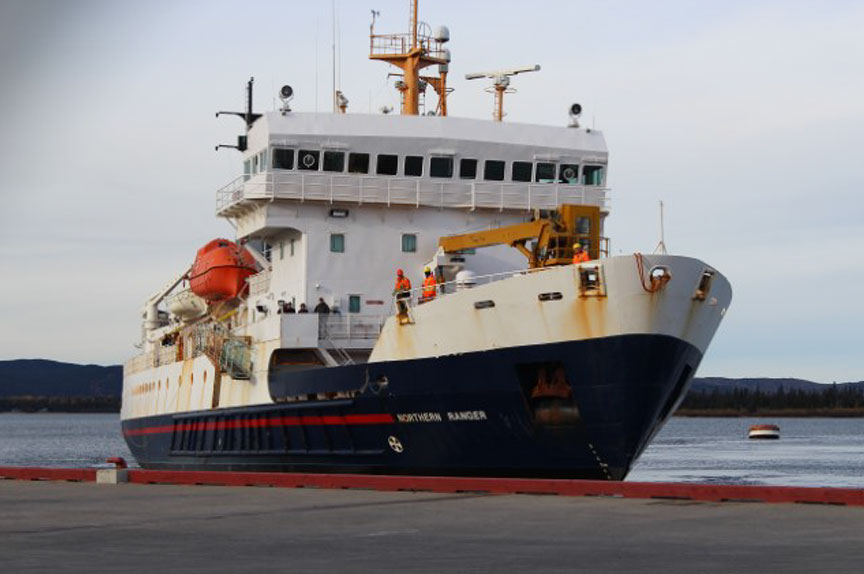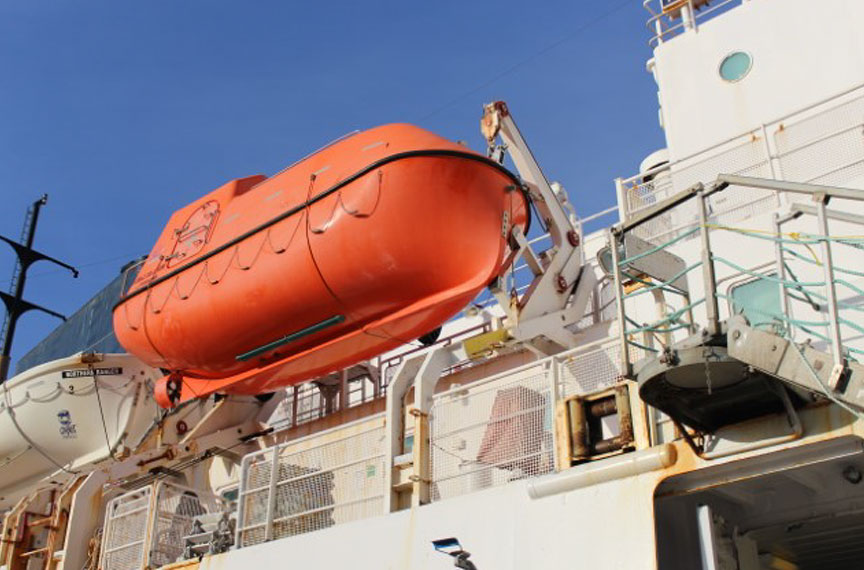Lifeboat release hook failure
Passenger ferry Northern Ranger
Nain, Newfoundland and Labrador
Passenger ferry Northern Ranger
Nain, Newfoundland and Labrador
The occurrence
On 11 October 2017, the starboard lifeboat of the passenger ferry Northern Ranger was undergoing operational testing at the dock in Nain, Newfoundland and Labrador, when its forward release hook failed. While the crew members were lifting the lifeboat to the vessel’s embarkation deck, the forward release hook suddenly released and the lifeboat swung downward, bow first, and hung over the water from the aft release hook and fall. Four crew members were on board the lifeboat at the time of the occurrence. One of the crew members fell through the lifeboat’s forward hatch and into the water; the other 3 crew members remained inside. All 4 crew members were recovered and their injuries were treated in hospital.
Safety communications
Safety advisories
Marine transportation safety advisory MSA 04/18: Failure of lifeboat release hook
Media materials
News release
October 2017 sudden release of passenger ferry Northern Ranger lifeboat during testing caused by improperly reset release hook
Read the news release
Deployment notice
TSB deploys a team to Goose Bay, Newfoundland and Labrador, following an accident involving the Canadian ferry Northern Ranger
Dartmouth, Nova Scotia, 12 October 2017 — The Transportation Safety Board of Canada (TSB) is deploying a team of investigators to Goose Bay, Newfoundland and Labrador, following a lifeboat accident that happened during a boat drill performed by the Canadian ferry Northern Ranger. The TSB will gather information and assess the occurrence.
Investigation information
M17A0391
Lifeboat release hook failure
Passenger ferry Northern Ranger
Nain, Newfoundland and Labrador
Download high-resolution photos from the TSB Flickr page.
Class of investigation
This is a class 3 investigation. These investigations analyze a small number of safety issues, and may result in recommendations. Class 3 investigations are generally completed within 450 days. For more information, see the Policy on Occurrence Classification.
TSB investigation process
There are 3 phases to a TSB investigation
- Field phase: a team of investigators examines the occurrence site and wreckage, interviews witnesses and collects pertinent information.
- Examination and analysis phase: the TSB reviews pertinent records, tests components of the wreckage in the lab, determines the sequence of events and identifies safety deficiencies. When safety deficiencies are suspected or confirmed, the TSB advises the appropriate authority without waiting until publication of the final report.
- Report phase: a confidential draft report is approved by the Board and sent to persons and corporations who are directly concerned by the report. They then have the opportunity to dispute or correct information they believe to be incorrect. The Board considers all representations before approving the final report, which is subsequently released to the public.
For more information, see our Investigation process page.
The TSB is an independent agency that investigates air, marine, pipeline, and rail transportation occurrences. Its sole aim is the advancement of transportation safety. It is not the function of the Board to assign fault or determine civil or criminal liability.

